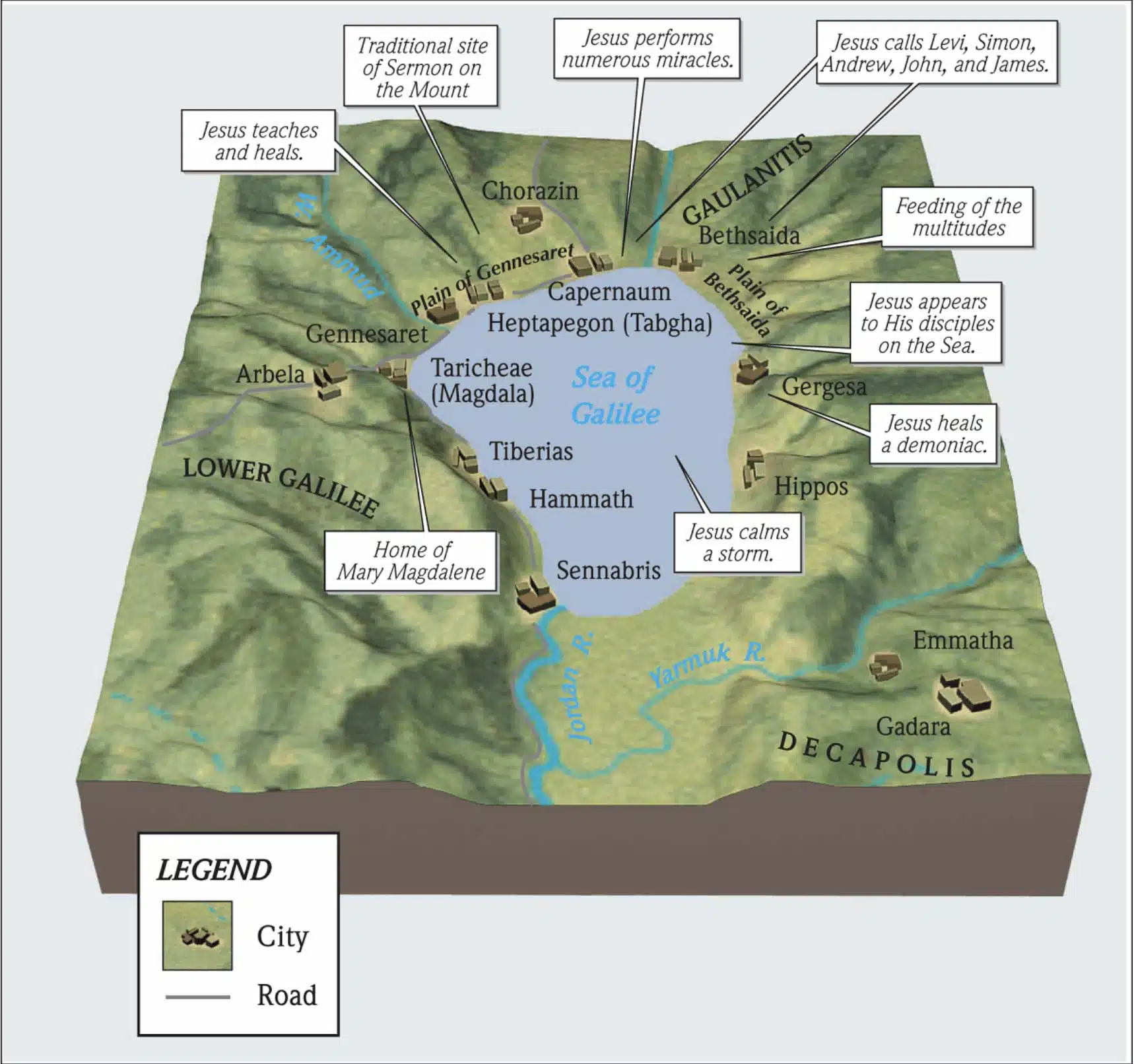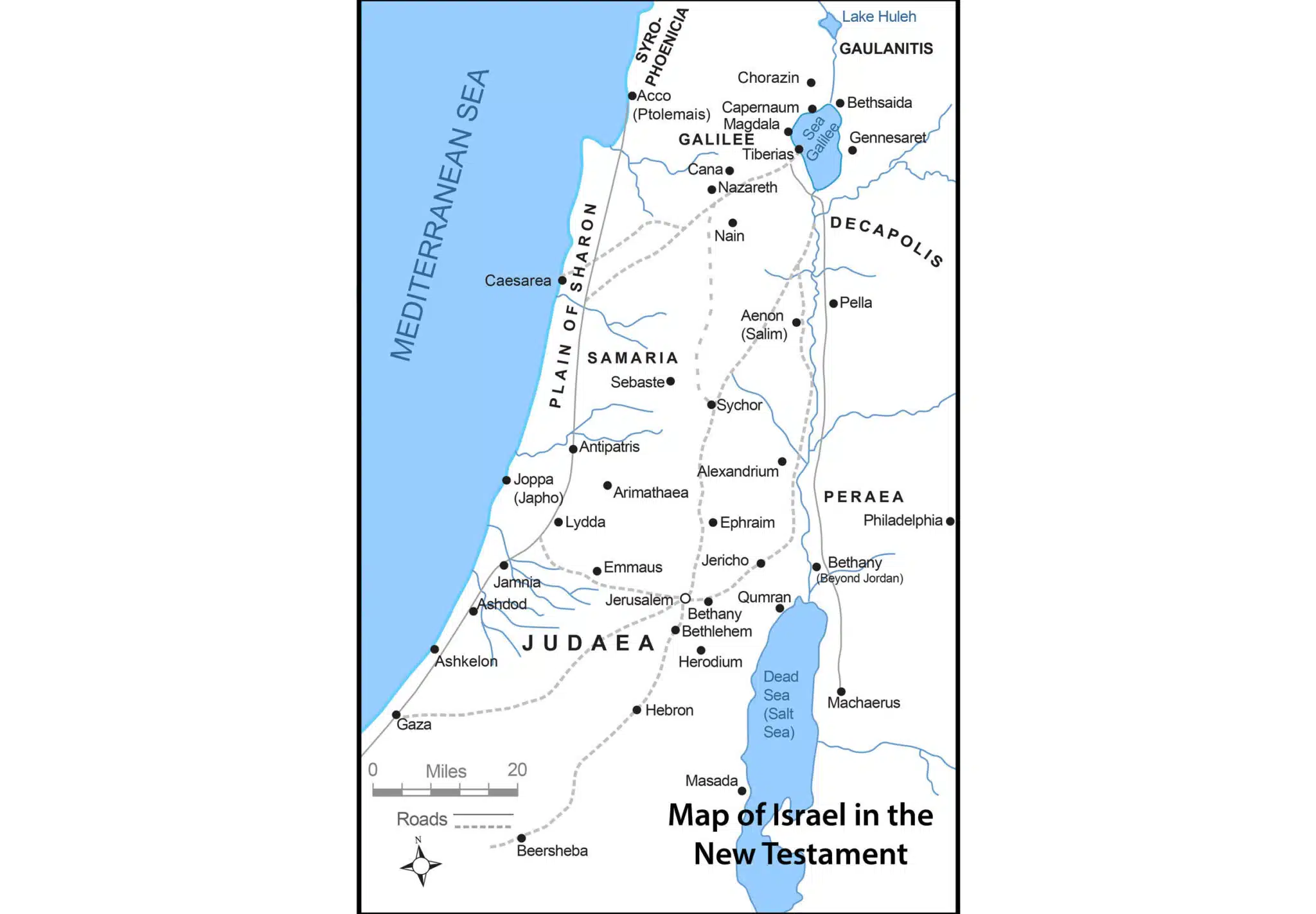Jesus’s final woe of warning to the scribes and Pharisees was condemning. In it He demonstrated how they were just like their fathers who murdered God’s prophets when they killed John the Baptist. He also said they would get their fill of even more prophet’s blood—so much so that they would become as guilty as though they killed every righteous person from Abel to Zechariah.
The parallel account of this statement is found in Luke 11:47-51.
The eighth woe in Matthew 23 regarded the Pharisee’s killing of God’s prophets. It was addressed to you, the scribes and Pharisees.
The scribes were religious lawyers. They meticulously searched the Law and the Tradition to create loopholes for themselves and to manufacture more and more rules to control the people. The Pharisees were the teachers of these religious customs and the leaders of the local synagogues. They crushed anyone who defied their authority or who failed to follow the scribes’ rules. Together, the scribes and Pharisees, were an unopposable and corrupt force of religious malpractice.
Jesus called them hypocrites. Hypocrite comes from the Greek term for “actor.” It is someone who pretends to be one thing but is really another. It describes someone who is fake. Jesus used this term to brand the scribes and Pharisees as religious frauds.
The reason He called them hypocrites in this woe, was because they acted as though they venerated God’s prophets who were martyred for serving Him when, in actuality, they would enthusiastically murder the prophets that God was sending them. We will soon see them murder the ultimate prophet, Jesus, who was God come in the flesh.
Jesus said, For you build the tombs of the prophets and adorn the monuments of the righteous. The religious leaders erected monuments and memorials to commemorate the prophets and the righteous heroes of Israel’s history. Many of these prophets and righteous heroes were persecuted and murdered by the religious establishments of their time. The scribes and Pharisees claimed, “If we had been living in the days of our fathers, we would not have been partners with them in shedding the blood of the prophets.” They said that they would have followed the prophets, and not opposed and killed them as their forefathers had done.
Jesus continued, So you testify against yourselves that you are the sons of those who murdered the prophets. Although claiming that they would have not acted like their fathers, who murdered the prophets, Jesus pointed out that the Pharisees are testifying against themselves, because in reality they are the sons of those murderers. Jesus told them you are just as guilty as your fathers.
With blistering sarcasm Jesus prophetically assured them, “Don’t worry, you will get your opportunity to slay God’s prophets too!” when He said: Fill up, then, the measure of the guilt of your fathers. This of course will transpire soon, when the Jews will conduct an illegal trial (breaking the weightier provisions of the Law) and convict Jesus of phony claims (Matthew 26:57-68).
Christ then echoed the sentiment of what John the Baptizer had said to them at the Jordan River a few years earlier when the Baptizer said, “You brood of vipers, who warned you to flee from the wrath to come?” (Matthew 3:7). Here Jesus said, You serpents, you brood of vipers, how will you escape the sentence of hell? This was possibly said to allude to the Pharisees’ opposition to John and to implicate them in his murder. If this was the case, it undermined the Pharisees’ entire argument that they were not like their fathers and would not have shed the blood of God’s prophets.
The phrase the sentence of hell is literally translated as the sentence of Gehenna.
Gehenna was the Greek name of the Hinnom Valley, located to the immediate south of Jerusalem’s city walls. It served as the city dump where waste and animal carcasses were burned and rotted. Jesus often used Gehenna as an image to contrast the blessings of His kingdom.
(To learn more about Gehenna, see our Tough Topics article “Gehenna, Hell, and Hades”).
A sentence is the punishment issued by a court or other legal authority for breaking the law. A guilty person receives a sentence. The scribes and Pharisees were guilty of the murder of John the Baptist. They would soon be guilty of the murder of the Messiah (Matthew 27:24-25) and other righteous men (Acts 7:57-60; 9:1-2; 12:1-3).
The sentence of Gehenna was likely a reference to the Pharisees being banished from the kingdom that Jesus came to usher in as Israel’s Messiah as a punishment for these murders. Jesus’s “Parable of the Vineyard” (Matthew 21:33-41) and the first half of His “Parable of the Marriage Feast” (Matthew 22:2-8) graphically describes their guilt.
So that the scribes and Pharisees would not miss their chance to kill even more of God’s prophets as their fathers had done, Jesus sarcastically said, Therefore, behold, I am sending you prophets and wise men and scribes. These were a reference to Jesus’s disciples and the disciples of the disciples that the Pharisees would hunt down and kill. Jesus said some of them you will kill and crucify, and some of them you will scourge in your synagogues, and persecute from city to city. Before he dramatically converted to belief in Jesus as the Messiah, Paul the Pharisee was in the process of doing these very things (Acts 9:1-2).
Jesus dramatically emphasized that the scribes and Pharisees would become so guilty murdering God’s prophets that upon them may fall the guilt of all the righteous blood shed in history on earth. Their guilt would stretch from the blood of Adam’s righteous son Abel who was murdered by his brother Cain (Genesis 4:8-10), to the blood of Zechariah, the son of Berechiah, whom, Jesus said, you murdered between the temple and the altar.
Who was Zechariah, the son of Berechiah?
While we are not certain, He might have been referring to the prophet Zechariah who was the author of the Book of Zechariah. This Zechariah introduced himself as the son of Berechiah (Zechariah 1:1). He was active as a prophet from 520-518 B.C. and he urged the people to rebuild the temple. He was a contemporary of Ezra and Nehemiah during Judah’s return from the Babylonian exile and may have even partnered with Ezra in bringing Levites back to Jerusalem (Ezra 8:16) and in teaching the law (Nehemiah 8:3-4). The Old Testament does not say when or how the prophet Zechariah died.
If Zechariah, the son of Berechiah was the same person as the prophet, then there is a symmetry in Jesus’s condemnation. Abel’s murder is told in Genesis, the first book of the Jewish scriptures. And the Book of Zechariah was combined with the Book of Malachi to form the final book of the Jewish scriptures. So if this was the Zechariah Jesus was speaking of, He was in essence using Abel and Zechariah to illustrate the beginning and end and all in between, and charging the guilt of every righteous person killed in the Old Testament upon the heads of the scribes and Pharisees.
Jesus concluded this eighth and final woe with a seal of authority: Truly I say to you, all these things will come upon this generation.
His expression truly I say to you was Jesus’s way of referencing His own personal authority. Many Jewish Rabbis would reference other notable scribes and scholars as a way to bolster their arguments. Jesus did not do this. Instead of saying, “As Rabbi so-and-so says,” Jesus said Truly I say to you… As God there was no higher authority than Himself.
Jesus frequently taught in this way (Matthew 5:18; 5:20; 5:22; 5:26; 5:28; 5:32; 5:34; 5:39; 5:44; 6:2; 6:5; 6:16; 6:25; 6:29; 8:10; 8:11; 10:15; 10:23; 10:42; 11:11; 11:22; 11:24; 12:6; 12:31; 13:17; 16:28; 17:12; 17:20; 18:3; 18:10; 18:18; 18:19; 19:9; 19:23; 19:24; 19:28; 21:21; 21:31; 21:43; 23:36; 23:39; 24:2; 24:34; 24:47; 25:40; 25:45; 26:13; 26:21; 26:29; 26:34).
Jesus promised them that all these things will come upon this generation of Pharisees. The phrase all these things could refer to the eighth woe alone and the blood-guilt of murdering God’s prophets. Or it could have meant all eight of the prophetic woes that Jesus issued upon the scribes and Pharisees in this chapter.
In either case, unless they repented, they were in a world of trouble, as all men will be accountable for their deeds before God (Romans 2:6-11).
After Jesus’s death and resurrection Peter encouraged these Jewish leaders to escape the woe that was to fall upon “this perverse generation” (Acts 2:40) by repenting and being baptized in the name of Jesus Christ (Acts 2:38). Some of them apparently did this and were saved (Acts 2:41; 21:20).
Biblical Text
29“Woe to you, scribes and Pharisees, hypocrites! For you build the tombs of the prophets and adorn the monuments of the righteous, 30 and say, ‘If we had been living in the days of our fathers, we would not have been partners with them in shedding the blood of the prophets.’ 31 So you testify against yourselves, that you are sons of those who murdered the prophets. 32 Fill up, then, the measure of the guilt of your fathers. 33 You serpents, you brood of vipers, how will you escape the sentence of hell? 34 Therefore, behold, I am sending you prophets and wise men and scribes; some of them you will kill and crucify, and some of them you will scourge in your synagogues, and persecute from city to city, 35 so that upon you may fall the guilt of all the righteous blood shed on earth, from the blood of righteous Abel to the blood of Zechariah, the son of Berechiah, whom you murdered between the temple and the altar. 36 Truly I say to you, all these things will come upon this generation.
Check out our other commentaries:
-
Matthew 21:23-27 meaning
The chief priests confront Jesus in the temple and interrogate Him about His authority. They publicly ask Him a framing question hoping to entrap Him....... -
Deuteronomy 30:1–5 meaning
Moses encourages the Israelites by telling them that when future generations rebel and are exiled, their Suzerain/ruler God would restore them from captivity, have compassion...... -
Colossians 1:15-20 meaning
Paul lays out the far-reaching supremacy of Christ. From beginning to end, in life and death, Jesus is preeminent in all things....... -
Matthew 1:20-21 meaning
An angel of the Lord comes to Joseph in a dream and reveals four unusual things: his betrothed has been faithful to him despite her...... -
Ecclesiastes 12:9-10 meaning
The Preacher has carefully crafted words of truth in order to share them with God’s people, to invite them into wisdom in the face of......




